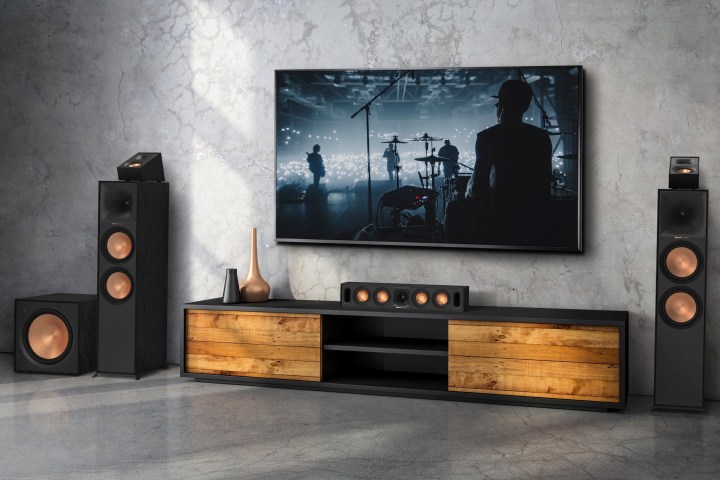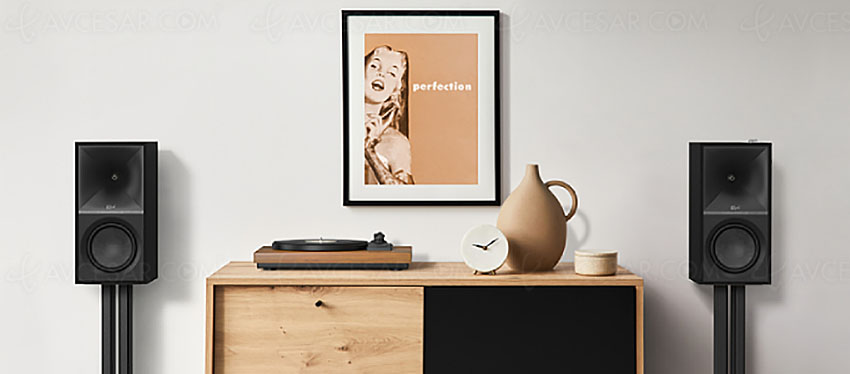Blog
How to Shop for Speakers Online: Tips for Making the Right Choice
Shopping for speakers online can be a daunting task, especially with the vast array of options available. Whether you’re looking for speakers for your home entertainment system, gaming setup, or just for personal music enjoyment, making the right choice requires careful consideration. To help you navigate the process, we’ve put together a guide with key tips to ensure you select the best speakers for your needs without feeling overwhelmed.

1. Determine Your Purpose and Needs
Before diving into online speaker shopping, it’s important to understand your specific needs. The type of speaker you choose will depend on the primary use case. Here are a few questions to help you determine your needs:
- For what purpose will the speakers be used? Are you using them for home theater, gaming, music, or for listening to podcasts during work hours?
- What is the desired size? If space is limited, you may need smaller, compact speakers, while larger rooms may require more powerful floor-standing models.
- Are portability and wireless capabilities important? For outdoor events or travel, portable Bluetooth speakers are ideal, while home setups might benefit from wired or more permanent installations.
2. Know the Different Types of Speakers
Speakers come in a variety of types, each suited to different setups and listening experiences. Here are the most common types to consider:
- Bookshelf Speakers: These are smaller, versatile speakers that can sit on a shelf, desk, or stand. They offer good sound quality for their size and are ideal for small to medium-sized rooms.
- Floorstanding Speakers: These speakers are larger and provide more powerful, full-range sound. They are perfect for creating a home theater setup or for large rooms.
- Bluetooth Speakers: Ideal for wireless audio, Bluetooth speakers are compact and portable. They’re great for casual listening, travel, or for those who prefer the convenience of wireless streaming.
- Soundbars: These are long, slim speakers designed to fit under a TV. Soundbars provide an easy way to enhance TV or movie audio, particularly in limited spaces.
- Subwoofers: If you want deep bass for music, movies, or gaming, adding a subwoofer to your setup can dramatically improve sound quality.
3. Check the Speaker Specifications
Understanding the specifications of the speakers you’re considering will help you make an informed decision. Some key specifications to pay attention to include:
- Wattage: This refers to the speaker’s power output. Higher wattage generally means louder sound, but it’s also important to match the wattage with your space. Too much power for a small room may lead to distortion.
- Impedance: Impedance is the resistance a speaker has to electrical flow, and it is measured in ohms. For most home setups, 8-ohm speakers are standard, but some home theater or car audio systems may require lower impedance speakers for optimal performance.
- Frequency Response: This represents the range of sounds a speaker can produce, from deep bass to high treble. A broader frequency response generally means more detailed and dynamic sound.
- Sensitivity: Sensitivity indicates how efficiently a speaker converts power into sound. A higher sensitivity means the speaker will produce louder sound with less power.
4. Read Product Reviews and Ratings
Online reviews are invaluable when shopping for speakers. Customer feedback can provide insight into the sound quality, build quality, and durability of the speakers. Pay attention to both positive and negative reviews to get a balanced understanding. Look for reviews that detail how the speakers perform in real-life situations and for similar use cases to yours (e.g., gaming, music, home theater).
Additionally, consider expert reviews from trusted tech websites or YouTube channels, which often include detailed sound tests and performance analyses.

5. Consider the Size and Design
Speakers come in various sizes and designs. When choosing, think about where you will place them and how they will fit into your environment. Larger speakers might provide better sound quality but can take up significant space. On the other hand, smaller speakers are more portable and can be tucked away easily, but they may not produce the same depth of sound.
The design of the speaker should also complement your aesthetic preferences. There are speakers available in various colors and finishes, from sleek modern designs to retro-style models, so you can find one that suits your taste.
6. Connectivity and Compatibility
In today’s connected world, it’s essential to choose speakers that are compatible with your devices. Here are a few things to look for:
- Wired vs. Wireless: If you want flexibility and convenience, wireless Bluetooth speakers are the way to go. However, wired speakers may offer better sound quality and reliability, especially for home theater setups.
- Inputs: Check the type of inputs the speakers support, such as USB, AUX, RCA, HDMI, or optical inputs. Make sure they are compatible with your devices, like your smartphone, computer, TV, or gaming console.
- Smart Features: Some speakers come with built-in voice assistants (e.g., Amazon Alexa, Google Assistant), which may be useful if you want hands-free control. Additionally, certain speakers may allow for multi-room audio setups, allowing you to sync sound across different rooms in your home.
7. Set a Budget
Speaker prices can vary greatly, so it’s important to set a budget beforehand. Prices can range from affordable compact speakers to high-end home theater systems. Keep in mind that more expensive speakers generally offer better sound quality, durability, and features, but you don’t need to break the bank to get a good product.
Look for sales, discounts, or bundles to maximize your budget. Many online retailers offer seasonal promotions or bundle deals that may give you additional value.
8. Check the Return Policy and Warranty
When shopping for speakers online, make sure the retailer has a solid return policy. This gives you peace of mind in case the speakers don’t meet your expectations or have compatibility issues with your setup. Ideally, look for a 30-day or longer return window and check if there are any restocking fees.
Additionally, check the manufacturer’s warranty to ensure you’re covered in case of defects or damage. A good warranty period (typically 1–3 years) can add value and reduce the risk of purchasing a faulty product.
9. Test the Speakers (If Possible)
While online shopping offers convenience, it can be hard to gauge sound quality without hearing it in person. If you can, try to listen to the speakers at a local store or find in-store demos. Some online retailers also offer customer satisfaction guarantees, allowing you to test the speakers at home and return them if they don’t meet your expectations.

Conclusion
Shopping for speakers online doesn’t have to be overwhelming. By understanding your needs, considering key features, and reading reviews, you can make an informed decision that enhances your listening experience. Whether you’re looking for speakers for music, movies, gaming, or work, following these tips will help you find the right option for your space, budget, and lifestyle. Happy shopping!

